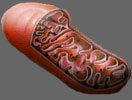In the 90's Met-Rx revolutionized the sports supplement world with their protein powder (2 scoops of "base" and 1 scoop of "plus") and then they introduced meal replacement shakes or MRP's. MRP's changed the protein powder world because just protein wasn't enough. People were on the go and they need meals that could be on the go with them.
EAS took the torch and the world went nuts over Myoplex. People were drinking Myoplex shakes all day long - for breakfast, as a post workout drink, in pudding form before bed. The shakes were high protein and low fat - PERFECT!
So we thought...
The year 2000 came. Fat was no longer the enemy; all of a sudden there were "healthy" fats. Carbohydrates were blamed for the health woes of our chubby society and people weren't really into gulping down 3 MRP's a day with the carbohydrate content being 20-30g a shot - with most of the carbs coming from maltodextrose. So what were people to do? Go back to drinking pure protein shakes and chomp on some almonds?
The industry responded... a new generation of MRP's was created. Some people may categorize these products as protein powders but they are more than that. The new generation of MRP's contains a blend of high quality slow and fast digesting proteins plus a mixture of healthy and essential fatty acids. Not to mention vitamins, minerals, and some even contain a good dose of fiber. Truly these are more than protein powders or the MRP's from the 90's.
Let's take a look at some products that are leading the way in this new generation of MRP's.

 MuscleMilk By Cytosport:
MuscleMilk By Cytosport:
MuscleMilk
Flavors: Banana Crème, Blueberries & Cream, Chocolate, Chocolate Banana Crunch, Chocolate Caramel Pecan, Chocolate Mint Chip, Cookies & Cream, Crème Brulee, Dulce De Leche, Egg Nog, Mocha Joe, Orange Crème, Peach Mango, Peanut Butter Chocolate, Pina Colada, Rocky Road, Root Beer Float, Strawberry, Strawberry Banana, Vanilla
Size: 2.48lbs
Serving per Container: 15
Calories: 348
Protein: 32g
Fats: 18g
Carbohydrates: 12g
The Upside:
MuscleMilk is truly the leader in this new generation of MRP's. It comes in an incredible 20 flavors including Root Beer Float and Egg Nog. The protein found in MuscleMilk is a special CytoSport blend called EVOPRO.
When the people at CytoSport designed EVOPRO they tried to mimic the protein and amino acid profile of human milk, a powerful growth promoting substance. As a result EVOPRO contains a significant dose of micellar casein along with whey concentrates, isolates, and even bovine colostrums - another compound thought to be rather anabolic.
Note: You can buy EVOPRO as a stand alone product.
MuscleMilk also contains a blend of high quality fatty acids. At first you might think that 18g of fat per serving is a lot but a good portion of these fats come from medium chain triglycerides (MCTs) and long chain polyunsaturated fatty acids. In the world of fats these are top notch.
MCTs are saturated fatty acids but because they are shorter in length than regular saturated fats the body processes them differently. They are almost exclusively used as energy and not stored as body fat. Unfortunately the people at CytoSport don't mention the type of long chain polyunsaturated fats they put in MuscleMilk, they could be omega-6 (not so good) or omega-3 (yeah!). Either way long chain polyunsaturated fats have a special role in our body and are not likely to be stored at fat.
The Downside:
MuscleMilk is a great product, that tastes great too but there are a couple things that could be changed to make it even better.
MuscleMilk only contains 12 grams of carbohydrates which is good because you don't want to combine too many carbs and fats (and MuscleMilk already has a good dose of fat). Unfortunately fiber is pretty much non existent from the MuscleMilk formula.
This is too bad because a good dose of fiber would make the nutrient profile of this product even better! Also maltodextrin is the main source of carbs. This isn't ideal but I guess you can't have amazing taste and ideal carbs in the same shake.
The other thing I'm not crazy about with MuscleMilk is the addition of glycocyamine. Strangely enough CytoSport extols the fact that glycocyamine is in their product. Why include glycocyamine? Well glycocyamine is a direct precursor to creatine (it is converted to creatine in the liver).
Unfortunately supplementing with glycocyamine has been shown to cause increases in homocysteine levels!! Increased homocysteine levels have been shown to greatly increase one's risk of heart disease. To make it even worse glycocyamine has been shown to DECREASE creatine uptake by muscles.
It is speculated that the addition of betaine while supplementing with glycocyamine will help prevent the increases in homocysteine levels. I cannot comment on whether or not this is true as I have not seen evidence one way or the other (though in theory it makes sense). MuscleMilk does contain betaine [((CH3)3NCH2COO)] and SAMe [(s-adenosylmethionine)] (another compound that theoretically will work like betaine) so increased levels of homocysteine MAY NOT occur.
The Bottom Line:
I've said this several times already - MuscleMilk is a great product with one of the most complete protein blends on the market and a healthy dose of healthy fats. My fears of glycocyamine is enough to make me weary enough not to use MuscleMilk everyday but definitely a 1-3 times a weeks when I need a change.

 Max Milk By EAS
Max Milk By EAS

Flavors: Chocolate, Vanilla, Cookies & Cream
Size: 2.48lbs
Serving per Container: 16
Calories: 340
Protein: 32g
Fats: 18g
Carbohydrates: 12g
The Upside:
The similarities between Max Milk and MuscleMilk are so great it is a little scary. This can be looked at as a good thing because MuscleMilk is a solid product. On the protein front Max Milk contains a blend of whey concentrate, whey isolate, and Ca+/Na+ caseinates. It also contains micellar casein and colostrums - these two are found in smaller amounts than the whey products.
The protein blend that EAS put together for this product is rounded out with glutamine peptides (the most abundant amino acid in muscle) and taurine (the second most abundant amino acid in muscle); two compounds that are said to have cell "volumizing" effects. Although glutamine isn't as popular as it once was, at least in some circles, taurine has shown promise as of late and is being included in a lot more products.
The lipid blend found in Max Milk contains the vaguely listed "dairy lipids." At first I thought this meant it contained CLA but I'm sure if it did EAS would have listed it on the bottle. The other fats listed are sunflower oil (high in omega-6 polyunsaturated fats), medium chain triglycerides (MCTs), and coconut oil (one of my preferred sources of saturated fats).
The combination of MCTs and coconut oil is a blend of "good" saturated fats. Max Milk also contains L-carnitine which is responsible for transporting long chain fatty acids into a cell's mitochondria so that they can be used for energy.
 |
Mitochondria:
The spherical or elongated organelles in the cytoplasm of nearly all eukaryotic cells, containing genetic material and many enzymes important for cell metabolism, including those responsible for the conversion of food to usable energy. Also called chondriosome. |
 |
 |
||
The carbohydrate profile of Max Milk looks similar to MuscleMilk except EAS has used fructose instead of maltodextrin. In the end, like the maltodextrin in MuscleMilk, 12g of carbohydrates isn't very much and as long as it isn't pure dextrose it probably won't make a huge negative impact.
The additional bells and whistles that are found in Max Milk come in the form of the "Creatine Potentiator Blend." This is 3 grams of creatine, betaine, arginine, and methionine. There probably isn't enough of these ingredients to make a noticeable impact on your physique but the creatine is a nice addition.
The Downside:
Max Milk has the same fiber problem that MuscleMilk does - there is no fiber! But this is a major flaw of most MRP's (new or old generation). If I could change one thing about Max Milk it would be the lipid blend, namely the sunflower oil. Sunflower oil contains a high concentration of omega-6 fatty acids. Most people's diets are high enough in omega-6 fatty acids to start out with and the last thing they need is a heaping dose of some more in their shake.
The Bottom Line:
Max Milk is a solid product that has a nutrient profile comparable to MuscleMilk. Because it doesn't contain glycocyamine I would feel comfortable using it on a daily basis. But the hefty dose of sunflower oil would prevent me from using it more than once a day.
Note: I analyzed the ingredients found in the Max Milk Chocolate flavor. Vanilla and Cookies & Cream may have different nutrient profiles.

Conclusion
In Part II, I'll examine four more next generation MRP's: Infusion by S.A.N., Muscle XGF by AST Sports Science, Lean Mass by BSN, and Muscle Meals by Muscle-Link.
